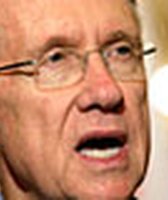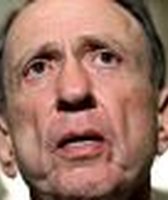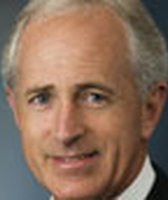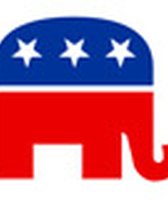Stand up for the facts!
Our only agenda is to publish the truth so you can be an informed participant in democracy.
We need your help.
I would like to contribute
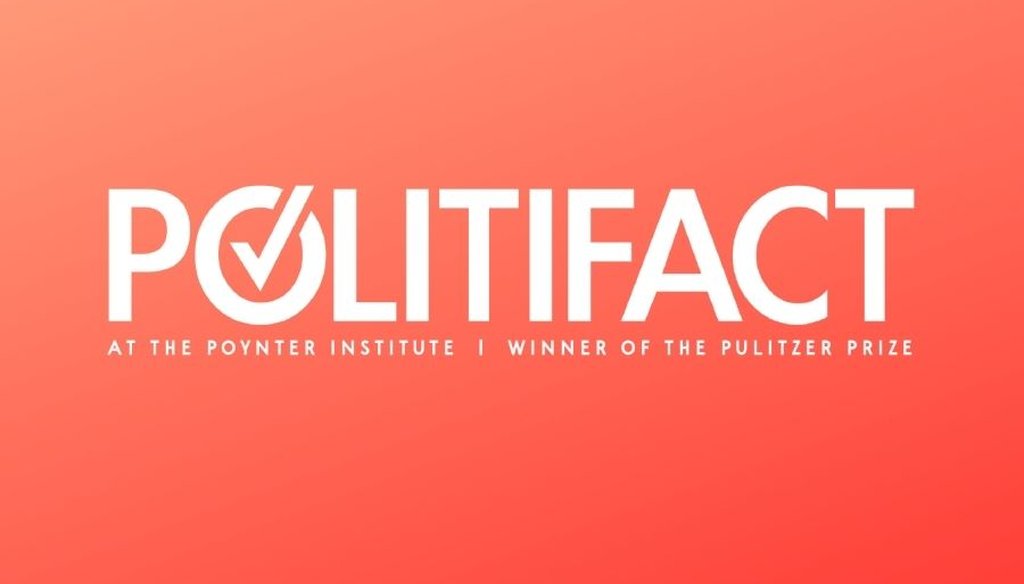
A cap and trade bill would set limits on carbon emissions.
For climate change skeptics, the timing could not have been better.
Just weeks before world leaders were slated to meet in Copenhagen, Denmark, to discuss a plan to lower global greenhouse gas emissions, a cache of hacked e-mails from the Climatic Research Unit, a branch of the University of East Anglia in the United Kingdom, were
posted on the Internet
.
According to critics, the e-mails demonstrate that climate scientists at CRU, which has been one of the leading sources of climate change research, have manipulated data to make global warming seem more dire than it actually is.
In a Dec. 9, 2009, op-ed in the
Washington Post
, former Gov. Sarah Palin used the e-mails to suggest boycotting the Copenhagen meeting. Longtime climate change skeptics like Sen. James Inhofe, R-Okla., have said that the e-mails have debunked the 'science' of manmade global warming.
The e-mails became public right before the meeting in Copenhagen, arguably the most important climate change gathering since the Kyoto Protocol -- a pledge to lower global carbon emissions 5 percent below 1990 levels -- was signed in Kyoto, Japan, in 1997.
Over the past few weeks, we've paid close attention to the controversy with an interest in fact-checking the e-mails, but there have been a number of issues that make fact-checking them difficult. To start, the e-mails were obtained illegally, which raises questions about their validity. Some e-mails simply demonstrate a professional rivalry between scientists, a phenomenon that's nothing new to the profession. Scientists are disputing the meaning of some of the language in the e-mails. Finally, CRU has announced that it is conducting its own investigation into whether data was tossed out or otherwise manipulated unethically; that investigation is not yet complete.
What's in the e-mails
On Nov. 20, 2009, more than 1,000 e-mails and 3,000 documents were hacked from the CRU server and posted to the Internet. They date back as far as March 1996.
In particular, skeptics have seized on
one e-mail
from 1999 written by CRU director Phil Jones regarding a study published in
Nature
by Penn State University climate scientist Michael Mann.
Jones writes, "I've just completed Mike's Nature trick of adding in the real temps to each series for the last 20 years (i.e., from 1981 onwards) and from 1961 for Keith's to hide the decline."
In a
Washington Post
article
, Mann says the "trick" referred to in the e-mail involved placing a chart of proxy temperature records ending in 1980 next to a chart showing temperatures from 1980 onward. "It's hardly anything you would call a trick," Mann told the
Post
. For his part, Jones said, "The word 'trick' was used here colloquially as in a clever thing to do. It is ludicrous to suggest that it refers to anything untoward," in a
Nov. 23 press release
. You can read other useful explanations of this e-mail
here
and
here
.
Critics say that another
e-mail exchange
from February 2005 -- also between Mann and Jones, and two others -- proves the climate scientists attempted to hide data from the public.
Jones writes, "I'm getting hassled by a couple of people to release the CRU station temperature data. Don't any of you three tell anybody that the UK has a Freedom of Information Act!"
And in a followup e-mail, Jones warns Mann to "make sure he documents everything better this time! And don't leave stuff lying around on ftp sites -- you never know who is trawling them. The two MMs have been after the CRU station data for years. If they ever hear there is a Freedom of Information Act now in the UK, I think I'll delete the file rather than send to anyone. Does your similar act in the US force you to respond to enquiries within 20 days? -- our does! The UK works on precedents, so the first request will test it. We also have a data protection act, which I will hide behind."
Mann writes back: "Yeah, there is a freedom of information act in the U.S., and the contrarians are going to try to use it for all its worth."
A great many of the e-mails discuss "contrarians," "skeptics" and others who don't agree with the data CRU insiders have collected and published. Indeed, egos are nothing new in the scientific community, which
this article
from the
Washington Post
does a good job of laying out. In an interview, Roger Pielke Sr., a scientist at the University of Colorado, explained how his own take on climate change was marginalized by his colleagues.
"To me, it's unambiguous . . . humans are altering the climate system," he told the
Post
. "It's just that, it's much more than CO
2
."
For Pielke, climate change is the result of carbon dioxide emissions as well as urbanization; when land changes from forest to a farm or suburb, so does the amount of heat and moisture coming off the ground.
"But Pielke said he has seen some papers rejected and has felt so marginalized that he quit a U.S. panel summing up climate change a few years ago," wrote
Post
reporters Juliet Eilperin and David Fahrenthold. "One of the stolen e-mails seems to confirm the idea that he was being excluded: In 2005,
Jones wrote to colleagues
about some of Pielke's complaints, 'Maybe you'll be able to ignore them?' "
Another e-mail from the same year
refers to Pielke
as "extremely difficult" and as having "strange ideas ... that are interesting, but still ... speculative -- but testable."
Sometimes the bad-mouthing got seedy. When the conservatives at the Competitive Enterprise Institute and Cato Institute charged that CRU destroyed climate data, Ben Santer, a climate researcher at the Lawrence Livermore National Laboratory in California
wrote Jones
that he was "tempted to beat the crap out of" Pat Michaels of the Cato Institute. "Very tempted."
What's Being Said
Response to the e-mails has been overwhelming among those who care about climate change. On the left, the e-mails are being downplayed. On the right, skeptics say that the e-mails threaten to undo the scientific underpinnings of global warming. Perhaps the most high profile responses have come from Palin and former Vice President Al Gore.
On Dec. 8, Gore said in
an interview with Slate.com
that "To paraphrase Shakespeare, it's sound and fury signifying nothing. ... These private exchanges between these scientists do not in any way cause any question about the scientific consensus. But the noise machine built by the climate deniers often seizes on what they can blow out of proportion, so they've thought this is a bigger deal than it is."
The next day, Palin
wrote in the
Washington Post
that, "The e-mails reveal that leading climate 'experts' deliberately destroyed records, manipulated data to 'hide the decline' in global temperatures, and tried to silence their critics by preventing them from publishing in peer-reviewed journals."
Others have concluded that the e-mails demonstrate some serious impropriety on the part of the CRU scientists, but nothing more than that. For example, the Pew Center on Global Climate Change
has concluded
that the 1,000-plus e-mails are largely routine and innocuous.
"Although a small percentage of the emails are impolite and some express animosity toward opponents, when placed into proper context they do not appear to reveal fraud or other scientific misconduct by Dr. Jones or his correspondents," the group wrote.
Similarly, the Union of Concerned Scientists
has concluded
that Jones' discussion of avoiding freedom of information requests and keeping articles out of journals "rightfully raise concerns about scientific integrity" but that the e-mails "do not indicate that climate data and research have been compromised."
So, what we do know is that these e-mails clearly demonstrate some petty professional backstabbing and a degree of skepticism within the CRU circle about opinions that do not match their own. They also raise the question of whether researchers fudged, manipulated or tossed out data that contradicted proof of global warming, but until CRU completes its own investigation, it's impossible for us to make a call on this point one way or another.
However, we can say this with certainty: The e-mails do not prove that global warming is a hoax. In fact, there's overwhelming evidence that temperatures
have been rising and are continuing to rise
. Just take a recent report issued by the United States
Global Research Program
, an arm of the government that, since 1989, has been coordinating and integrating federal research on changes in the global environment and their implications for society. The report states that "global warming is unequivocal and primarily human-induced. ... Warming over this century is projected to be considerably greater than over the last century. The global average temperature since 1900 has risen by about 1.5ºF. By 2100, it is projected to rise another 2 to 11.5ºF."
Like all our readers who've e-mailed us about the CRU e-mails, this story fascinates us. We're going to be watching it closely to see what develops. In the meantime, you can read our analysis of Palin's claim that China and India have
put forth greenhouse gas reduction proposals
that actually allow them to increase their emissions, and another about Inhofe's claim that the CRU e-mails show that science behind climate change "
has been pretty well debunked
."
Our Sources
The Guardian,
The climate denial industry is out to dupe the public. And it's working
, by
George Monbiot
, Dec. 7, 2009
The Washington Post,
Whose war on science
, by Michael Gerson, Dec. 11, 2009
The Washington Post, Hackers steal electronic data from top climate research center , by Juliet Eilperin, Nov. 21, 2009
The Washington Post,
In e-mails, science of warming is hot debate
, by David Fahrenthold and Juliet Eilperin, Dec. 5, 2009
Global Climate Change Impacts in the United States
, accessed Dec. 11, 2009
The Wall Street Journal,
'Cap and Trade Is Dead'
, Nov. 27, 2009
Popular Mechanics, What East Anglia's E-mails Really Tell Us About Climate Change, By Peter KelemenPublished on: December 1, 2009









